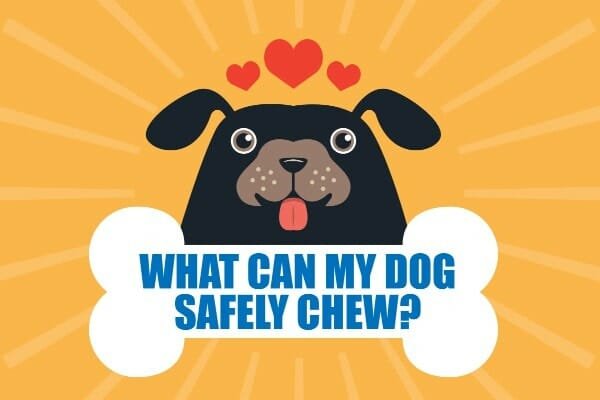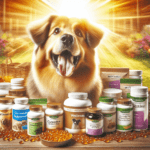
Keeping your dog’s playtime safe and enjoyable involves more than just selecting the right toys; it also includes ensuring their overall health and well-being. Veterinary medicine plays a vital role in this process by offering insights and products that support your dog’s health from the inside out. Veterinarians can recommend specific supplements, like glucosamine and omega-3 fatty acids, to maintain joint health, ensuring your dog can run, jump, and play without pain. Additionally, dental health is crucial since many toys require chewing, making regular dental cleanings and appropriate chews essential. By consulting your veterinarian and focusing on a complete, balanced diet with necessary supplements, you can help maintain your dog’s optimal health and safety during playtime. How can you ensure your dog’s safety while playing with toys? As a dog owner, you must have often pondered this question. Toys play a crucial role in a dog’s life by providing mental stimulation, physical exercise, and simply a lot of fun. But just like with any other aspect of dog care, safety should be a priority. Enter veterinary medicine—a field that can offer valuable insights into how you can ensure your dog’s safety as they play. From understanding their health needs to choosing the right products and supplements, let’s delve into how veterinary medicine can be your guide.

Understanding Canine Health and Well-Being
The Role of Veterinary Medicine
Veterinary medicine is essential for maintaining your dog’s overall health. Through regular checkups and advice from veterinarians, you can ensure that your dog’s well-being is continually monitored. Veterinary professionals can offer specific health assessments tailored to your dog’s breed, age, and lifestyle. These experts can also recommend appropriate toys that match your dog’s health requirements.
Health Concerns to Consider
Certain health concerns can make some toys more dangerous for dogs. For example:
- Dental Health: Puppies love to chew, but some toys can be too hard and may harm their developing teeth.
- Joint Health: Older dogs or those with joint problems may find it difficult to play with toys that require excessive jumping or running.
Your veterinarian can help you identify specific health issues and suggest toy types that won’t exacerbate these conditions.
Choosing the Right Toys for Your Dog
Breed-Specific Considerations
Different dog breeds may have varied needs when it comes to toys. For example:
- Small Breeds: Toys should be small enough for them to handle but durable enough to withstand the chewing force.
- Large Breeds: Larger breeds need bigger, sturdier toys that won’t break apart easily.
Your veterinarian can provide recommendations based on your dog’s breed, making it easier to select toys that are safe and enjoyable.
Safe Materials
Certain toy materials are safer for dogs than others:
- Natural Rubber: Durable and unlikely to splinter.
- Rope Toys: Great for teething but must be replaced once they start to fray.
- Synthetic Stuffing: Avoid toys with synthetic stuffing that can be ingested.
Veterinary insights can guide you towards toys made from materials that won’t pose a threat to your dog’s health.

The Importance of Regular Check-Ups and Vaccinations
Annual Health Screenings
Regular veterinary check-ups are vital. These screenings can help catch health problems early and give your vet a comprehensive understanding of what toys may be safest. For example:
- Teeth Examinations: Ensure that your dog’s teeth are in good condition for toys that involve a lot of chewing.
- Joint Examinations: Evaluate the condition of your dog’s joints to suggest safe levels of activity.
Importance of Vaccinations
Vaccines help protect your dog from various diseases that could arise from interactions with contaminated toys or environments. Ensuring that your dog is up-to-date with vaccinations provides an added layer of safety.
Complementary Health Products and Supplements
Dog Health Products
Dog health products can range from multivitamins to specific supplements designed to address particular concerns. Supplements like glucosamine and chondroitin can support joint health, while omega-3 fatty acids can improve skin and coat condition.
Canine Wellness Supplements
Veterinary-approved supplements can be a great way to ensure your dog maintains optimal health. For example:
- Probiotics: Support a healthy digestive system.
- Essential Fatty Acids: Aid in maintaining a healthy coat and skin.
- Vitamins: To support overall health.
If you’re contemplating supplements, it’s always wise to talk to your vet first. They can recommend products that are appropriate for your dog’s age, breed, and health condition.

Special Considerations for Senior Dogs
Joint and Hip Health
Senior dogs often face joint and hip issues, making certain types of toys unsafe. Look for toys designed for gentle play that won’t strain their joints. Joint supplements can also help maintain their mobility and should be considered as part of their routine.
Oral Health
Dental health becomes even more crucial as dogs age. Veterinarians can recommend dental cleanings and appropriate chew toys that can help maintain oral hygiene without causing harm.
The Role of Diet in Safety
Balanced Diet
A complete and balanced diet is paramount for your dog’s overall health and, by extension, their safety during playtime. A well-nourished dog is less prone to injuries and more energetic, making playtime both safer and more enjoyable.
Dietary Supplements
Some dogs may require dietary supplements to address specific deficiencies. Supplements can help in maintaining healthy skin, joints, and overall vitality, contributing to a safer play experience.

How Veterinary Medicine Supports Normal Inflammatory Responses
Inherent in active play is the risk of inflammation, particularly in older or more active dogs. Veterinary medicine can offer supplements that support a normal inflammatory response, ensuring that your dog can enjoy their toys without undue pain or discomfort.
Recognizing and Addressing Stress
Understanding Canine Stress
Stress and anxiety can manifest in various ways, including destructive play. Veterinary medicine can help you recognize signs of stress and suggest behavioral modifications or calming products like pheromone diffusers.
Stress-Relieving Toys
Certain toys are designed to relieve stress by providing mental stimulation. Puzzle toys, for example, can divert your dog’s attention and reduce anxiety.

Consulting Your Veterinarian
Importance of Direct Consultation
Before introducing any new toy or supplement, a consultation with your veterinarian is invaluable. They can help you identify potential risks and suggest the best products to enhance your dog’s safety and well-being.
Tailored Recommendations
Veterinarians can provide you with tailored advice based on a multitude of factors like your dog’s age, breed, current health status, and lifestyle, making your job as a responsible dog owner much easier.
Summary Table for Quick Reference
| Focus Area | Recommendations | Benefits |
|---|---|---|
| Dental Health | Natural rubber chew toys | Prevents tooth damage |
| Joint Health | Glucosamine and chondroitin supplements | Maintains mobility |
| Balanced Diet | Complete and balanced dog food | Overall vitality |
| Oral Health | Regular dental cleanings, appropriate chew toys | Better oral hygiene |
| Stress Management | Stress-relieving toys, pheromone diffusers | Reduces anxiety and destructive behavior |
| Vaccinations | Stay up-to-date | Protects against diseases from contaminated toys |
| Probiotics | Probiotic supplements | Supports a healthy digestive system |
| Essential Fatty Acids | Omega-3 and other fatty acid supplements | Improves skin and coat condition |
Veterinary medicine is an indispensable tool in ensuring your dog’s safety during playtime. From offering health screenings and vaccinations to recommending appropriate toys and supplements, veterinarians can guide you in making informed choices for your canine companion. So, the next time you’re picking out a new toy or considering a supplement, remember to consult with your vet to ensure it’s the best choice for your dog’s health and safety.







